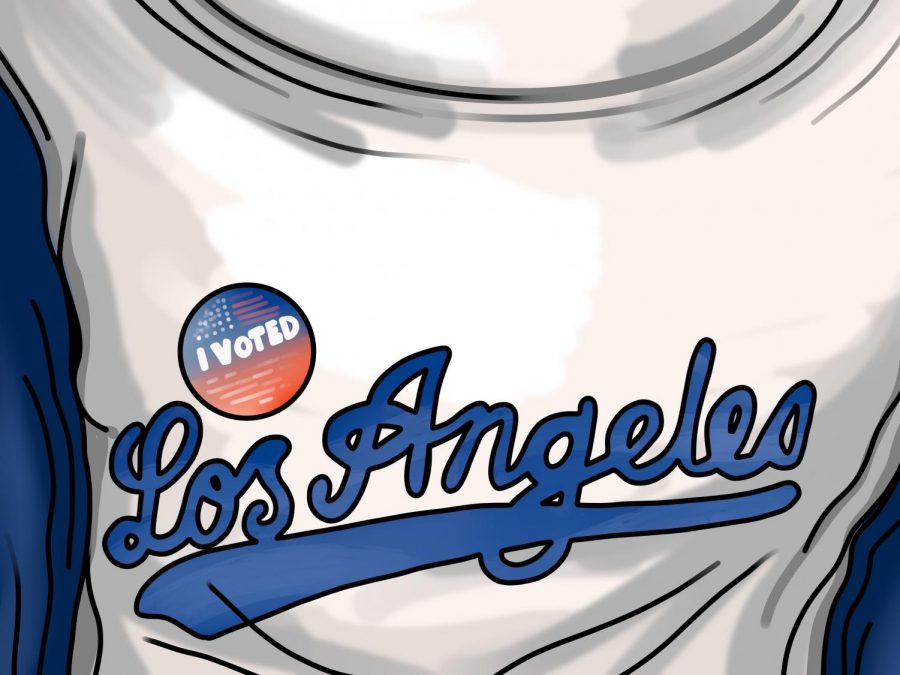LA mayoral election gains recognition from students and citizens
October 30, 2021
The 2022 Los Angeles mayoral election is gaining more attention as various candidates announce their campaigns to succeed current Mayor Eric Garcetti ’88. Garcetti, who was nominated in May by President Joe Biden to serve as Ambassador to India, is term-limited and cannot run for mayor again.
Due to the political makeup of LA, with 71% of voters voting for Biden in 2020, the race is largely seen as a process of determining which Democrat will succeed Garcetti. Though it is unclear whether Garcetti will step down to assume his ambassadorial duties due to a lack of Senate confirmation, candidates are running for a full term, not the remaining time in Garcetti’s term if he were to resign.
Representative Karen Bass, a Democrat representing parts of LA in the U.S. House of Representatives, announced her candidacy for mayor on Sept. 27. Bass, a national figure who was in contention to be Biden’s Vice Presidential pick in 2020, has caused the race to pick up as the media and more Angelenos turn their eyes towards it.
“Our city is facing a public health, safety and economic crisis in homelessness that has evolved into a humanitarian emergency,” Bass said in a statement announcing her candidacy. “I’ve spent my entire life bringing groups of people together in coalitions to solve complex problems and produce concrete change — especially in times of crisis. Los Angeles is my home.”
Bass’s remarks come in recognition of the state of the race. One of the major issues of the 2022 Mayoral race is homelessness, with 47% of Angelenos saying they see homelessness as the most serious issue facing the city according to a USA TODAY/Suffolk University Poll.
Other major candidates are local LA politicians, including President Pro Tempore of the LA City Council Joe Buscaino, LA City Councilmember Kevin de León and LA City Attorney Mike Feuer.
Jack Coleman ’22 said he is glad that homelessness is being emphasized in the mayoral race, and believes candidates need to create new plans to address the homelessness crisis.
“Regardless of party or ideology, I think we can all agree that homelessness is one of the most important issues facing our city,” Coleman said. “Luckily, I think almost every major candidate in the race recognizes that. It’s time candidates think outside the box. We need large-scale ideas for a major problem. I haven’t researched all the candidates’ stances, so I can’t make a pronouncement on who I’m supporting, but I know we need bold change.”
In an Aug. 27 poll done before Bass announced her candidacy, Bass led the race with 27% of Democrats polled saying they would vote for her and the closest candidate, de Leon, having 6%. While political races are often in flux and results may not match polling, such as the New York Mayoral Primary in June, Bass is in a strong position for the Fall 2022 election.
Manu Markman ’23, who has been following the race closely, said he believes a progressive Democrat will win due to LA’s voting trends.
“I think a Democrat will win because it’s impossible for a Republican to win in LA due to demographics and general voting trends,” Markman said. “I think this race is going to reflect growing trends in the Democratic party rather than nationwide trends, and I think either Rep. Bass or De León will win. I don’t think a moderate can beat a progressive in Los Angeles unless they have a significant demographical or geographical advantage (considering the race is local, nobody has any geographical advantage).”
A nonpartisan blanket primary, in which two candidates regardless of party affiliation are chosen to run against each other in the general election, is scheduled for June 7, 2022. The general election is set for Nov. 8, 2022.
Some Harvard-Westlake Upper School students who have turned 18 by election day and are registered to vote will be able to vote in-person or by mail in the election next fall.
History teacher Celia Goedde, who teaches Advanced Placement American History, said she’s seen a positive trend of students becoming more civically engaged and politically oriented recently.
“This current generation of students is by far the most politically active I’ve seen in my lifetime,” Goedde said. “One of the changes I have noticed in the past decade is that more and more HW students are politically involved, not just by voting when they turn 18, but also by participating in marches and protests, working on campaigns or, if they meet the age qualification, working at polling places on election day.”





























Christina Montaño • Oct 30, 2021 at 7:38 pm
Everyone needs to keep their eyes on Ramit Varma who will be the best candidate. He’s a successful businessman and not your same old politician. If you’re tired of getting the same results year after year, and want some positive changes to take place in Los Angeles…. Then you need to check out Varma for mayor in ’22. He has amazing ideas to control homelessness and the unemployed.